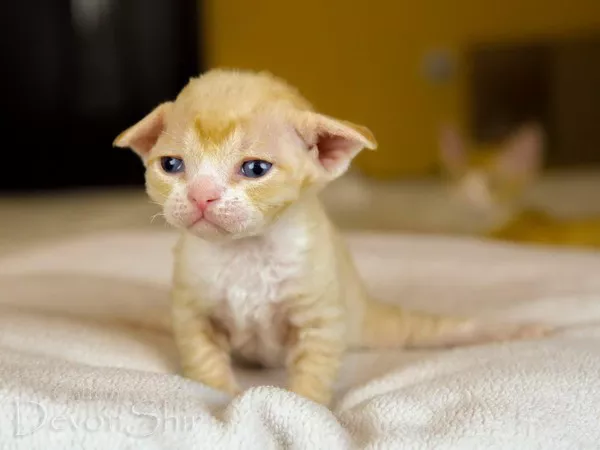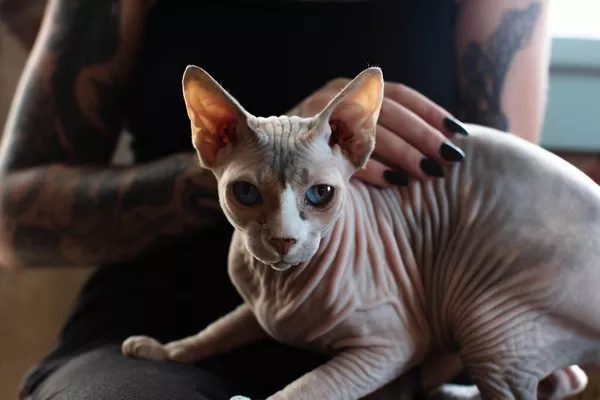Cats are beloved companions known for their independence, agility, and affectionate nature. However, like all living beings, cats are susceptible to various illnesses that can impact their health and well-being. Understanding the most prevalent health concerns in felines is essential for cat owners to provide timely care and ensure their furry friends lead healthy lives. In this article, we will explore the most common illness in cats, shedding light on their symptoms, prevention, and potential treatments.
1. Feline Upper Respiratory Infection (URI)
Overview
Feline Upper Respiratory Infection (URI), also known as “cat flu,” is one of the most common illnesses affecting cats, especially those living in multi-cat environments or shelters. It is highly contagious and typically caused by viral agents, such as feline herpesvirus (FHV) and feline calicivirus (FCV). These viruses attack the cat’s upper respiratory system, leading to symptoms similar to the common cold in humans.
Symptoms
Symptoms of feline URI may include sneezing, nasal congestion, runny nose, watery or inflamed eyes, coughing, lethargy, and loss of appetite. In severe cases, cats may develop fever and experience difficulty breathing.
Prevention and Treatment
Preventing feline URI involves maintaining good hygiene and separating sick cats from healthy ones to minimize transmission. Vaccination against common respiratory viruses can also be effective in preventing the disease. If a cat does contract URI, supportive care, such as keeping the eyes and nose clean and providing proper nutrition, can aid in recovery. In severe cases, veterinary intervention and antiviral medications may be necessary.
2. Feline Lower Urinary Tract Disease (FLUTD)
Overview
Feline Lower Urinary Tract Disease (FLUTD) encompasses a group of disorders that affect the bladder and urethra of cats. This condition is more common in male cats and can range from urinary tract infections to urinary blockages, which are life-threatening emergencies.
Symptoms
Symptoms of FLUTD include frequent urination, straining to urinate, blood in the urine, inappropriate urination outside the litter box, and signs of discomfort or pain while urinating. In male cats with urinary blockage, there may be a complete inability to urinate, which requires immediate veterinary attention.
Prevention and Treatment
Proper hydration is crucial in preventing FLUTD, as well-hydrated cats are less likely to develop urinary crystals and blockages. Providing fresh water and wet cat food can help encourage water intake. Additionally, maintaining a clean litter box and reducing stress in the cat’s environment can also contribute to preventing FLUTD. Treatment for FLUTD varies depending on the specific condition but may include antibiotics for infections, dietary changes, and, in the case of blockages, catheterization or surgery.
3. Dental Disease
Overview
Dental disease is a common issue in cats, affecting the gums, teeth, and overall oral health. It can range from mild gingivitis to severe periodontal disease, which can lead to tooth loss and other health complications.
Symptoms
Symptoms of dental disease in cats include bad breath, swollen or bleeding gums, difficulty eating, drooling, and reluctance to groom or groom less frequently.
Prevention and Treatment
Regular dental care is essential to prevent dental disease in cats. Brushing the cat’s teeth regularly with a cat-specific toothbrush and toothpaste, providing dental treats or toys, and offering dental diets can all contribute to maintaining good oral health. If dental disease is already present, a veterinary dental cleaning may be necessary to remove tartar and plaque buildup. In severe cases, extractions or other dental procedures may be required.
4. Gastrointestinal Issues
Overview
Gastrointestinal issues are common in cats and can result from various factors, including dietary indiscretion, parasites, infections, or underlying medical conditions.
Symptoms
Symptoms of gastrointestinal issues may include vomiting, diarrhea, decreased appetite, lethargy, and weight loss.
Prevention and Treatment
Preventing gastrointestinal issues involves feeding a balanced diet, avoiding sudden dietary changes, and keeping the cat’s environment clean and free from potential toxins. If a cat does experience gastrointestinal problems, withholding food for a short period can help give the digestive system a rest. However, if symptoms persist or worsen, veterinary attention is necessary to identify and treat the underlying cause.
5. Parasitic Infestations
Overview
Parasitic infestations are prevalent in cats and can include fleas, ticks, ear mites, and intestinal worms.
Symptoms
Symptoms of parasitic infestations can vary depending on the type of parasite but may include scratching, hair loss, red or inflamed skin, ear shaking, diarrhea, and changes in appetite.
Prevention and Treatment
Preventing parasites involves using preventive medications recommended by a veterinarian. Regular grooming and hygiene also play a role in preventing parasitic infestations. If a cat is already infested, appropriate medications and treatments are necessary to eliminate the parasites and prevent their recurrence.
Routine Veterinary Check-ups and Preventive Care
Importance of Regular Veterinary Check-ups
Regular veterinary check-ups are vital for maintaining a cat’s health and detecting potential health concerns early. Through routine examinations, veterinarians can assess a cat’s overall health, provide preventive care, and address any emerging issues promptly.
Preventive Care Measures
Preventive care measures, such as vaccinations, deworming, flea control, and dental cleanings, are essential components of maintaining a cat’s health and well-being. Following a veterinarian’s recommendations for preventive care can significantly reduce the risk of common illnesses in cats.
Conclusion
While cats are generally resilient and hardy animals, they are not immune to illnesses and health challenges. Understanding the most common illnesses in cats, such as Feline Upper Respiratory Infection (URI), Feline Lower Urinary Tract Disease (FLUTD), dental disease, gastrointestinal issues, and parasitic infestations, is crucial for early detection and timely treatment. With proper preventive care, regular veterinary check-ups, and a loving and attentive environment, cat owners can ensure their feline companions lead healthy and happy lives.

























